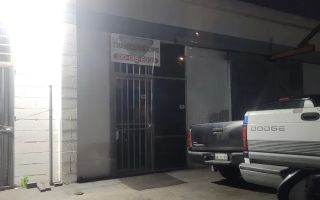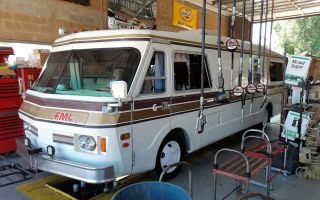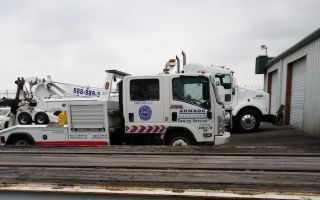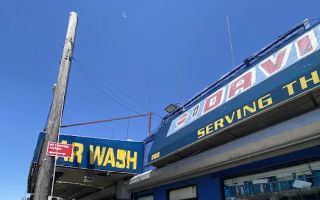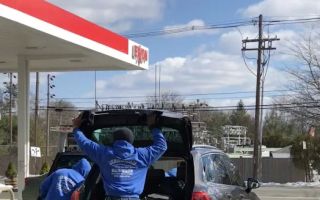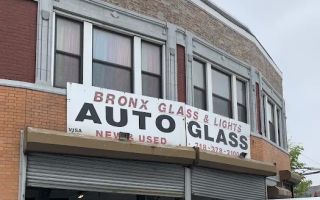Roadside Assistance for Cars with Broken Alternators: How to Get Back on the Road Fast
- 1. Understanding Alternator Failures in Cars
- 2. Symptoms of a Broken Alternator
- 3. Common Causes of Alternator Failures
- 4. Roadside Assistance: What to Expect
- 5. How to Choose the Right Roadside Assistance Service
- 6. Tips for Preventing Alternator Problems in the Future
1. Understanding Alternator Failures in Cars
The alternator in your car is responsible for charging the battery and powering the electrical system while the engine runs. A broken alternator can lead to various problems, including a dead battery, dim lights, and complete engine failure. When your alternator fails, your vehicle may become inoperable, leaving you stranded on the road. Fortunately, roadside assistance for cars with broken alternators is available to help get you back on track quickly.
Understanding how the alternator works and why it’s so critical to your vehicle’s performance can help you recognize the signs of failure early. Knowing when to call for roadside help can save you time and money, preventing further damage to your vehicle.
2. Symptoms of a Broken Alternator
It’s essential to know the symptoms of a broken alternator, so you can act quickly and call for roadside assistance before your car completely breaks down. Common symptoms include:
- Dim or Flickering Lights: If your headlights or dashboard lights start to dim or flicker, it could indicate an alternator issue. Since the alternator powers your car’s electrical system, any irregularity in lighting could be a sign of trouble.
- Electrical Failures: Malfunctioning electrical components, such as windows or radios not working, could signal a failing alternator.
- Warning Lights: Many cars have dashboard lights that indicate alternator problems. If the battery warning light or check engine light appears, it’s time to get your alternator checked.
- Dead Battery: A broken alternator will prevent your battery from charging. If your car fails to start or has trouble holding a charge, this may be the root cause.
- Strange Noises: If you hear grinding or whining noises from the engine area, it could be due to a failing alternator bearing.
If you experience any of these symptoms, don’t wait for the problem to worsen. Contact a roadside assistance service immediately to avoid being stranded or facing more expensive repairs later.
3. Common Causes of Alternator Failures
Alternators can fail for various reasons. Some of the most common causes include:
- Wear and Tear: Over time, alternators can wear out, especially if they are exposed to excessive heat, dirt, and moisture. Regular use of the vehicle puts strain on the alternator, eventually leading to failure.
- Faulty Voltage Regulator: The voltage regulator controls the output from the alternator to the electrical system. If it malfunctions, it can prevent the alternator from properly charging the battery.
- Corroded Wiring: Corrosion on the wiring or terminals connecting the alternator to the battery can prevent the alternator from working efficiently.
- Broken Belts: The alternator is powered by a belt, and if the belt becomes damaged or slips off, the alternator will stop charging the battery.
Understanding these causes can help you take preventive measures and know when it’s time to seek roadside assistance for a broken alternator.
4. Roadside Assistance: What to Expect
If your alternator breaks down while you’re on the road, roadside assistance services can provide the help you need. Depending on the severity of the issue, they may offer the following services:
- Towing: If your alternator failure leaves you stranded, roadside assistance can tow your vehicle to a nearby repair shop or your preferred mechanic.
- Battery Jump-Start: In some cases, if your alternator failure has caused the battery to drain, roadside assistance can jump-start your vehicle to get you back on the road temporarily.
- On-Site Repair: In some cases, roadside assistance services may be able to provide on-site repairs if the alternator problem is minor and can be resolved quickly.
Having access to reliable roadside assistance ensures that you won’t be stuck in an emergency situation, and it can significantly reduce your stress in dealing with a broken alternator.
5. How to Choose the Right Roadside Assistance Service
When selecting a roadside assistance provider, consider the following factors:
- Response Time: Choose a provider with a fast response time to ensure you get the help you need as quickly as possible.
- Availability: Look for a service that is available 24/7, so you can get assistance any time of day or night.
- Reputation: Read reviews and ask for recommendations to find a reputable provider that offers reliable service and quality support.
- Coverage Area: Make sure the service covers your location and any areas you typically travel to, ensuring you’re never too far from assistance.
By carefully evaluating these factors, you can choose a roadside assistance provider that offers the best coverage and service for your needs.
6. Tips for Preventing Alternator Problems in the Future
While roadside assistance can help you when your alternator breaks down, taking steps to prevent these issues can save you time and money. Here are a few tips to keep your alternator in good condition:
- Regular Maintenance: Have your alternator inspected regularly during routine maintenance to catch any potential issues before they become serious problems.
- Check for Warning Signs: Stay alert to symptoms of alternator failure, such as dimming lights or electrical malfunctions, and address them promptly.
- Keep the Belt Tight: Ensure that the alternator belt is in good condition and properly tensioned to avoid belt failure.
By following these tips, you can extend the lifespan of your alternator and reduce the likelihood of breakdowns in the future.
Need help with a broken alternator? Visit Rescue & Towing for fast, reliable roadside assistance services!


